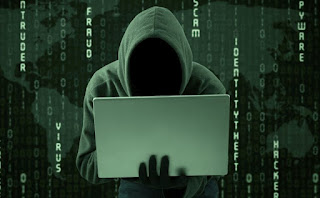Unveiling the World of Ethical Hacking: Enhancing Cybersecurity for a Safer Digital Realm
Introduction:
In today's interconnected world, where data breaches and cyber threats are becoming more prevalent, the need for robust cybersecurity measures has never been more critical. Ethical hacking, also known as penetration testing or white-hat hacking, plays a vital role in identifying vulnerabilities and strengthening security systems. This article aims to provide an SEO-friendly overview of ethical hacking, its significance in safeguarding digital assets, and the ethical considerations associated with this cybersecurity practice.
Understanding Ethical Hacking:
Ethical hacking involves authorized professionals, known as ethical hackers or penetration testers, who employ their expertise to identify and exploit vulnerabilities in computer systems, networks, and applications. Their goal is to assess security weaknesses before malicious actors can exploit them for malicious purposes.
The Importance of Ethical Hacking:
2.1 Enhancing Cybersecurity:
Ethical hacking serves as a proactive defense mechanism to identify vulnerabilities and strengthen security measures. By simulating real-world attacks, ethical hackers can expose weaknesses, allowing organizations to patch and fortify their systems before they are exploited by cybercriminals. This practice ultimately reduces the risk of successful attacks and data breaches.
2.2 Protecting Sensitive Data:
As organizations handle an increasing amount of sensitive data, including personal information and financial records, the consequences of a security breach can be severe. Ethical hacking helps organizations identify and address vulnerabilities to protect confidential data from unauthorized access, maintaining customer trust and ensuring compliance with data protection regulations.
2.3 Staying Ahead of Cybercriminals:
Cybercriminals are constantly evolving their tactics, making it essential for organizations to adopt a proactive security approach. Ethical hacking enables organizations to understand the latest attack vectors and techniques used by malicious actors, ensuring they can implement adequate safeguards to mitigate risks effectively.
The Ethical Considerations:
Ethical hacking comes with a set of guidelines and principles to ensure responsible and lawful practices. Ethical hackers must operate within legal boundaries, gaining proper authorization from system owners and respecting privacy rights. They must adhere to strict codes of conduct, including maintaining confidentiality, avoiding damage to systems, and obtaining consent for any activities performed during testing.
The Ethical Hacking Process:
4.1 Reconnaissance and Information Gathering: Ethical hackers start by gathering information about the target system or network, analyzing available resources, and identifying potential entry points.
4.2 Vulnerability Analysis: This stage involves assessing the target's security posture by scanning for vulnerabilities, misconfigurations, or weaknesses that could be exploited.
4.3 Exploitation: Ethical hackers attempt to exploit identified vulnerabilities to gain unauthorized access or extract sensitive information. The purpose is to determine the severity of the security flaw and its potential impact.
4.4 Reporting and Remediation:
After successfully exploiting vulnerabilities, ethical hackers compile comprehensive reports detailing their findings and recommendations for system owners. This allows organizations to understand the weaknesses, prioritize remediation efforts, and strengthen their security measures.
Career Opportunities in Ethical Hacking:
With the increasing demand for cybersecurity professionals, ethical hacking offers promising career prospects. Ethical hackers can work as consultants, penetration testers, or security analysts in various industries, helping organizations protect their digital assets and mitigate risks.
Conclusion:
Ethical hacking serves as a vital component in the modern cybersecurity landscape. By uncovering vulnerabilities, ethical hackers play a crucial role in fortifying digital systems, protecting sensitive data, and ensuring a safer online environment. As technology continues to advance, the importance of ethical hacking in safeguarding our digital realm will only grow, making it an indispensable practice in the fight against cyber threats.





Post a Comment